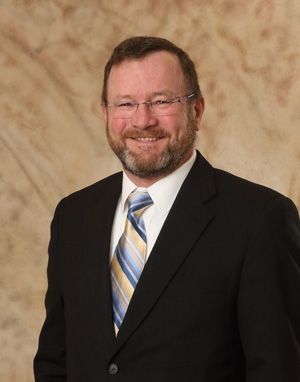Restricting foreign ownership of U.S. land, codifying a “right to repair" farm equipment and imposing labeling restrictions on lab-grown meat are just a few of the ideas up for debate as state legislatures across the U.S. convene for their 2024 sessions.
Thirty-seven state legislatures are already in session, with nine more set to resume later this year, according to the National Council of State Legislatures. Among the topics expected to be discussed are disaster resilience, highly pathogenic avian influenza, pesticides, invasive species, agrivoltaics, sustainability, farm-to-table initiatives, new and beginning farmers, agritourism, animal confinement and tax provisions, according to NCSL public affairs director Mick Bullock.
Montana, Nevada, North Dakota and Texas will not hold regular sessions in 2024. Those four states meet biennially and only during odd-numbered years, unless special sessions are called.
Bills intended to place or expand restrictions on foreign investments in agricultural land have already been filed in 21 state legislatures this year, according to National Agricultural Law Center staff attorney Micah Brown. Most of these bills are similar in nature to last year’s slate of proposals, which targeted land held by investors from China, Russia, Iran and North Korea.
This approach stands in contrast to what Brown calls “traditional” foreign land laws, which are found in several midwestern and eastern states and tend to apply to “individual aliens” or foreign businesses rather than investors from specific countries. Even states like Iowa that have longstanding foreign land laws are now considering additional restrictions for investors from, as Brown puts it, the “big four” U.S. adversaries.
“I didn’t know how much activity we were going to get, but we’ve had a ton,” Brown said of the current slate of proposals.
 Mick Bullock, NCSL
Mick Bullock, NCSLThe nationwide debate over whether companies should be required to give individuals the “right to repair” items they purchase is also poised to continue in statehouses. Colorado last year became the first state to approve a measure focused on ensuring access to agricultural equipment.
Proposals have already been filed this year in Michigan, Vermont, Missouri, Illinois, Indiana, West Virginia and Mississippi, according to Gay Gordon-Byrne, the executive director of the Repair Association.
The issue, which has been embraced by the National Farmers Union, has not necessarily been a partisan one. Bills have been filed by members of both parties, Gordon-Byrne said.
“It’s a popular topic among farmers, which means it’s a popular topic in the ag committees in these states,” Gordon-Byrne told Agri-Pulse.
Meanwhile, Arizona’s legislature is weighing labeling restrictions for lab-grown meat, which also falls under the jurisdiction of the Food and Drug Administration and the U.S. Department of Agriculture. USDA's Food Safety and Inspection Service last year chose to require GOOD Meat and UPSIDE Foods to use a “cell-cultivated chicken” label on their products.
The proposal up for debate in Arizona, HB 2244, would outlaw labels “intentionally” identifying cell-cultured food as meat. The proposal, which prohibits lab-grown meat cultivators from using terms “the same as or deceptively similar” to other kinds of meat, advanced through the Arizona House’s Committee on Land, Agriculture and Rural Affairs on Monday with a 6-3 vote.
“I’m not arguing whether it’s meat or not,” the bill’s sponsor, Republican Quang Nguyen, told the committee Monday. “I’m just saying, let’s make the labels so that people realize that this is cultured or lab-grown meat.”
It’s easy to be “in the know” about what’s happening in Washington, D.C. Sign up for a FREE month of Agri-Pulse news! Simply click here.
The bill would also apply to labels on plant- or insect-based foods. Drake Jamili, a lobbyist for the nonprofit Good Food Institute, told the committee the proposal would disadvantage plant- and cell-based food companies in the marketplace.
“This would impose intended regulations and privileges on certain producers over another,” Jamili said. “So kind of picking winners and losers, at least from our point of view.”
Proposals addressing the development of carbon pipelines may also be introduced in South Dakota, North Dakota, Minnesota, Iowa and Illinois this year amid flaring tensions over Summit Carbon Solutions’ proposed 1,300-mile project.
Ethanol producers’ hopes of securing access to some biofuel subsidies and markets hinge on using the pipelines to lower their greenhouse gas emissions, though the project has proved divisive for landowners who have expressed concerns about the potential use of eminent domain to secure rights for the project.
 Doug Sombke, South Dakota Farmers Union
Doug Sombke, South Dakota Farmers UnionAt least three bills will be considered by the South Dakota Legislature this year, though more may be filed, according to South Dakota Farmers Union President Doug Sombke. One of these bills, which would have required surveyors to get permission from landowners, alert landowners 30 days prior to the survey date, and compensate landowners for any possible damages, failed to make it through the state House’s Commerce and Energy Committee last week amid opposition from Summit and rural electric cooperatives.
Other proposals will attempt to bar “private use” projects from utilizing eminent domain, Sombke said.
One legislative trend that has picked up in the South and may expand to the Midwest are amendments to existing grain grading standards, according to Brown with the National Agricultural Law Center.
Brown said he’s noticed a handful of proposals to update grain grading standards in states like Louisiana, Mississippi and Georgia, though he’s unsure of what has prompted them. He suggested they may stem from concern that current standards are too unfavorable for producers.
“Maybe some states think there needs to be updates to be more favorable to ag and the producer in establishing better standards to grade grain,” he said.
For more news, go to www.agri-pulse.com.


